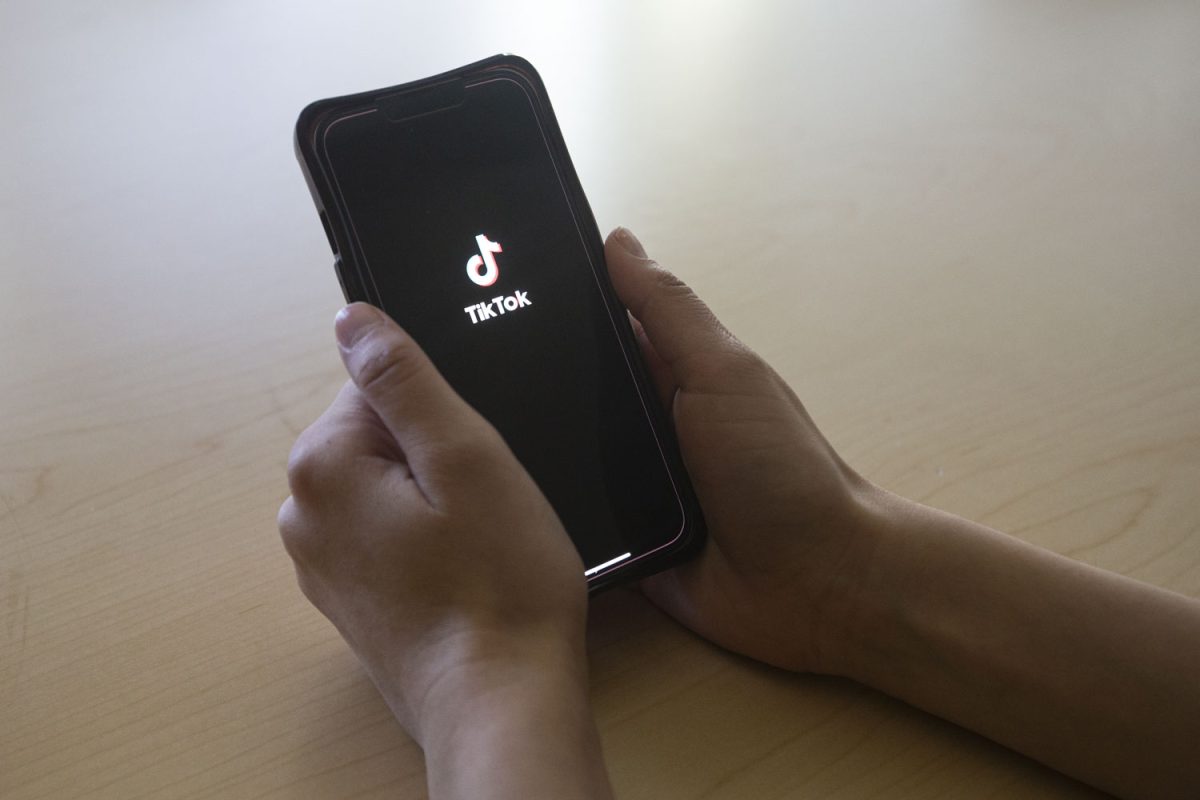YES
At the start of the pandemic in 2020, my friends were constantly sending me links to TikTok videos, much to my annoyance. With every discussion of a trend on the app, I would scoff, seeing myself as intellectually superior to those fools who would spend so many hours watching mind-numbing videos.
In May of that year, I finally caved. I downloaded the app and made an account, but only to watch videos my friends sent me, I said to myself.
Four years later, I spend an embarrassing amount of time on TikTok. In fact, I don’t spend half as much time on any other app as I do on TikTok.
TikTok should be banned but not because of misguided security concerns. It should be banned because of its addicting properties, harmful algorithm, and the ease with which it influences its users.
It’s no secret that social media can have devastating effects on people’s self-esteem and self-image, especially children. TikTok is a particularly dangerous proponent of this effect.
With its endless supply of short videos, TikTok is a cheap dopamine factory for the developing brain. This leads to young people, myself included, becoming addicted to mindlessly swiping.
Last spring, I declared that enough was enough, and I deleted TikTok from my own home screen. Not one hour later, I found myself on the couch, craving the cheap dopamine hits that those videos gave me. TikTok found itself back on my phone, and it hasn’t gone anywhere since.
I am not alone in my problem. Over 1.5 billion TikTok users spend nearly 4.5 billion minutes watching the 15 second to three-minute-long videos every day, according to Statista.
The best way to beat the temptation? Get rid of the option in the first place. For my sake, and the sake of the rest of my generation, TikTok should be banned.
NO
It’s no secret that TikTok has garnered a massive audience from both its supporters and opponents. With the recent announcement of the platform being banned in the U.S. by the government, many are questioning the validity of this recent legislation.
TikTok should not be banned because the platform has launched careers for many social media users and is primarily used in the beauty and fashion industries. The platform has boosted small-business sales and cultivated its audience of over 1 billion monthly users. To ban it would spell disaster for many U.S. beauty brands and social media users who rely on the platform for income.
Websites such as Youthforia with more than 185,000 followers, and skin care companies like Nailboo and BeautyStat have used TikTok to promote their products and build a large audience thanks to the platform.
With the app banned, it spells disaster for countless companies like these since they would either go out of business or have to transition to another app.
However, TikTok has become so intertwined in the beauty and fashion industry that finding a replacement would be a problematic task. Although many believe TikTok is a spyware company for the Chinese government, the truth is that it is not unique.
TikTok works by collecting data and information about users, but so do Facebook, Instagram, and Google. This isn’t special to TikTok. Following this logic on TikTok would mean banning those other sites, too, but that would mean banning popular websites beloved by people.
Banning TikTok is not the right answer. There must be another option, like investing in better U.S. security privacy laws.



